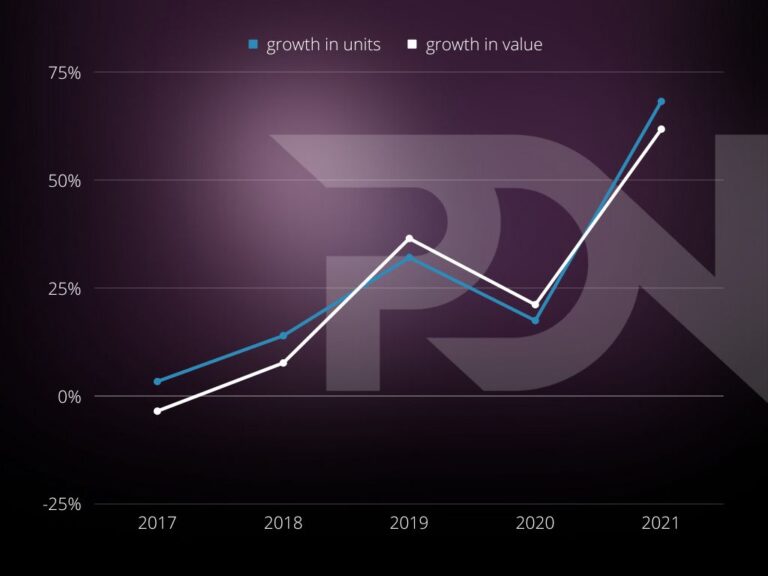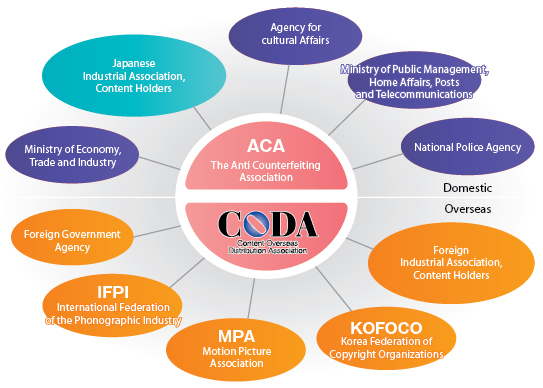In our first article about the anime market we focused on the many players in the anime market. This multiplicity of actors makes the production of these films and shows almost as costly as traditional cinema production.
Obviously, the return on investment (ROI) and the employment market suffer greatly from piracy, which, in turn, hinders creativity. If the revenues generated are indeed lower than expected, the production of new films and episodes will be compromised. Producers will then tend to invest in more “commercial” formats and themes, hesitating to take artistic risks, in order to make sure that they will get enough ROI.
As the anime market is strongly linked to the manga market, we will also discuss piracy and the Japanese comic book market in this article.
As with many other media, the covid-19 pandemic and lockdowns have caused a sharp increase in piracy since 2020.
At the same time, the popularity of manga has never been higher in Japan – sales skyrocketed in 2020 and 2021, and the trend seems to be continuing in the first quarter of 2022.

Manga sales 2017-2021. Data from https://www.npd.com/
The Authorized books of Japan (ABJ), a countermeasure group created by manga publishers, has collected a list of 400 pirate manga sites. As a result of the pandemic, the number of monthly visits to the top 3 pirate manga sites increased 26-fold, reaching 326 million visits per month, compared to 12.5 million visits per month the previous year. The estimated loss of revenue from visits to the top 10 pirate sites exceeded ¥780 billion (US$6.77 billion), a sharp increase from the previous year. Last year, in 2021, the estimated loss of revenue was 210 billion yen (US$1.80 billion).
The two markets are also strongly connected. Their public and their themes are similar, and mangas are often adapted into animes, so we can assume that a similar trend is emerging in anime. Indeed, official figures rarely separate anime films and series from their filmed counterparts; it is therefore difficult to obtain accurate data on anime piracy.
However, the big piracy sites such as kissanime or 9anime have more visitors than the official sites such as Crunchyroll or Funimation, the subreddits on anime piracy are very active, and the trend doesn’t seem to be reversed. Despite the closure of Kissanime in March 2022, many mirror sites exist hosting exactly the same content; these sites continue to be highly visited.
To quote Gabe Newell, president of the video game company Valve, and creator of games such as Dota and Counter-Strike, “Piracy is a service problem”.
The whole interview is available here. Mr. Newell’s words, although from a decade ago b(20111) , are still very relevant to the manga and anime market: “One thing that we have learned is that piracy is not a pricing issue. It’s a service issue. The easiest way to stop piracy is not by putting antipiracy technology to work. It’s by giving those people a service that’s better than what they’re receiving from the pirates”.
Many users regret the fact that a large number of animes are not available in their country through official channels; these Internet users turn to piracy not because they are not ready to pay, but because they simply cannot buy the product legally.
The Japanese anti-piracy group Content Overseas Distribution Association (CODA) has launched a huge project in 2022 to fight against the distribution of anime and manga on illegal websites. The international organisation will ultimately be composed of local companies such as Japanese giants Sueisha, Kodansha or Toeil, several Hollywood studios such as Disney Universal or Paramount, Netflix, and about 450 Chinese companies, also members of the China Copyright Association. The group is initially expected to bring together players from around 15 countries, before expanding further.

CODA group as in July 2022
Objectives
This allows, for instance, to target the countries where the servers are located. Indeed, it is often the international servers, out of reach for the local authorities, that cause the most financial damage. For example, in 2021, Shueisha, a member of CODA, requested the help of the American justice system to find the operator of Mangabank, one of the biggest manga piracy sites in the world, which was put out of service thanks to the intervention of the United States.
Beyond the creation of international groups and coalitions, short-term solutions are available for rightsholders. Although imperfect, they can reduce the impact of piracy on your bottom line.
Blocking and closing down sites forces pirates to constantly recreate mirror sites and therefore spend more to keep their illegal links available, and users informed; this makes them lose competitiveness. In addition, some users become discouraged when a site is blocked or the address is changed, or simply no longer have access to information on how to find the new site.
Also, the removal of pirate links, even though they may be quickly restored, forces pirates to invest more time and money in re-downloading the links on the sites, as well as in the creation and maintenance of new websites.
If you need a company that specializes in anime or manga protection, please contact us to chat with one of our account managers. We have over a decade of experience in the industry and will be happy to help you.
Our new article about ebook piracy will be online on the 15th of August, stay tuned !
© 2023 PDN Cyber Security Consultant. All rights reserved.